BERLIN – Fatih Akin has never been one to shy away from controversy but The Golden Glove may just top the lot. When we met the filmmaker at the Berlinale last year, where the film received its world premiere, we had plenty of questions, and thankfully, he had plenty to say. This biopic of disgusting serial killer Fritz Honka (played by Jonas Dassler) does not shy away from its graphic depiction of violence. It’s revolting at times, and we spoke to Akin all about his depiction of gore and violence, and why he felt it necessary to present it in such a way.
Let’s talk about the casting of Jonas, who is still young and has a rather different face to Honka… What in him did you see to make him the lead of The Golden Glove?
He was too beautiful and I was jealous about it! No, I was in the middle of the casting process and we were at an award’s ceremony and I was sat next to my wife, who did the casting for this film, and Jonas was awarded for best ‘next generation actor’ and she said, this guy, in 10 years, is your Honka. My vision of Honka was like the real guy, someone really ugly, he was so ugly people on the street would turn away from him. Whoever I would cast would need a lot of make-up and I thought, well if I need so much make-up I can also go for a younger actor. So I invited him for the casting and he was very good. But there was one thing I could see, which is that his youth gave the character a fragility, and I liked that, that touched me. I wanted to do a film about a serial killer, I didn’t want to use the usual tricks to manipulate the audience to like the guy, I thought no. It is what it is. But still we have to follow him as an audience, we have to watch him and somehow be focused on him, and I thought his youth gave it a complexity what I couldn’t create in the screenplay or the make-up.
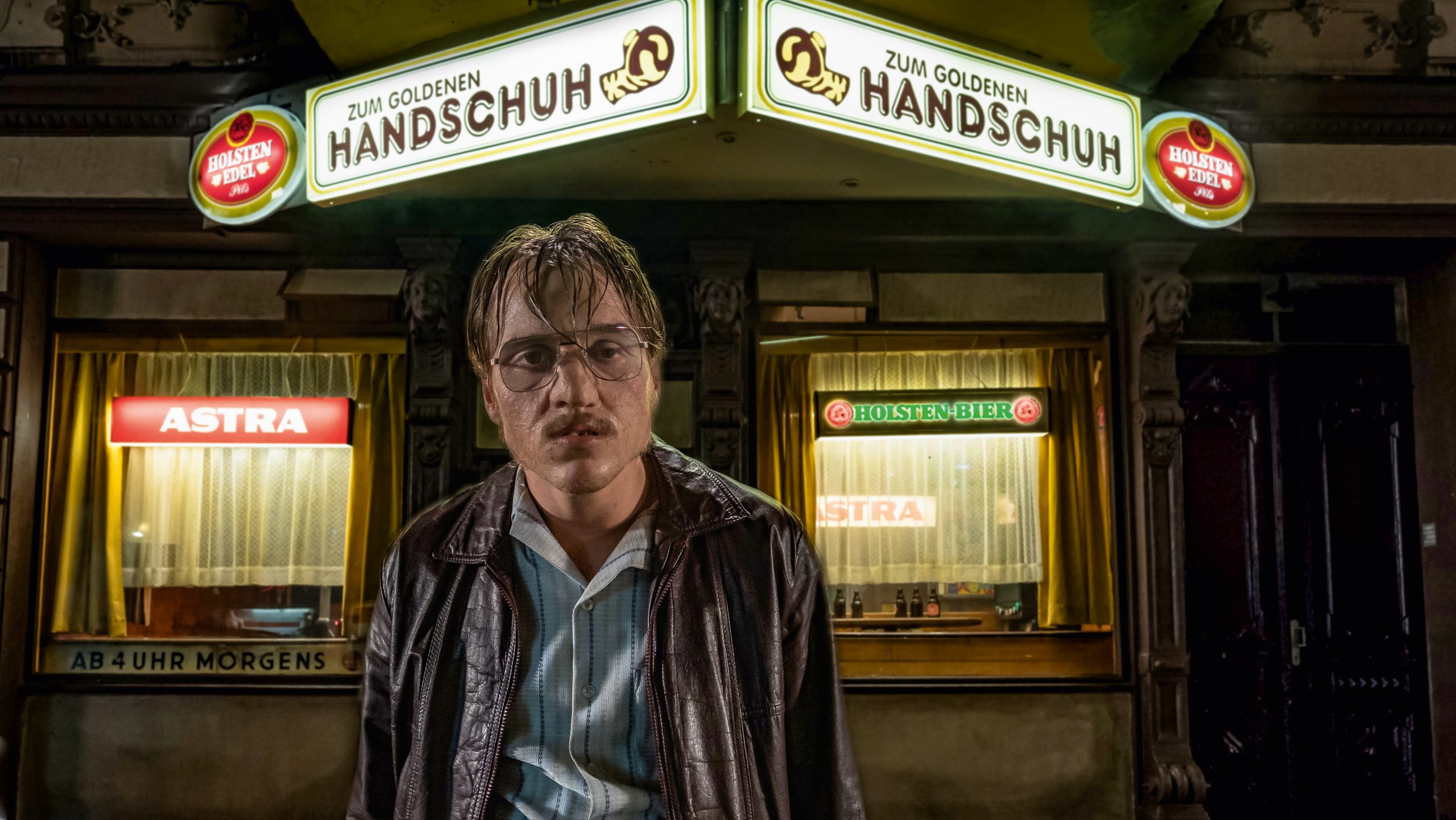
Of course The Golden Glove, as well as The House That Jack Built, has brought about conversations to do with the representation of violence and sexual oppression. Do you think when people ask you about this, those questions are valid? And are they conversations you invite when you start working on a project like this?
I don’t think too much about that stuff, I go out and do the things I want to do. When we started working on this, there were rumours that Lars was doing a film about a serial killer, and I thought, oh we’re dealing with the same business. Then it came out and I decided not to watch it. I usually watch all Lars von Trier stuff, I love his work and I clearly do respect him as an artist and he’s had a huge influence on my career, without his Breaking the Waves I wouldn’t have won my award 15 years ago, because that was the biggest influence. But somebody spoiled to me that there were kids shot in the film, in front of the camera, and this is something right now in my life that I cannot watch. I can’t watch a kid being killed on camera, so I decided to not watch it. I trusted Lars to do his thing with violence, and I’d do my thing with violence, and we are completely different people, and I trusted my instinct on that. Because we’re different, how we show violence will be different. My film is about violence, and so I have to show it. You cannot make a film about sex without showing sex. People get disturbed by my film because of the way that I show violence. The media is full of violence, you turn on a television and all of it is full of violence. We are so used to it that it doesn’t touch us anymore, but hey we’re talking about it, we’re talking about a human being hurting another human being. How can I show how people are affected by violence? How can I show that people get scared by violence? I have to show it realistically. I had to be very clear on what the audience did need, and what the audience didn’t need.
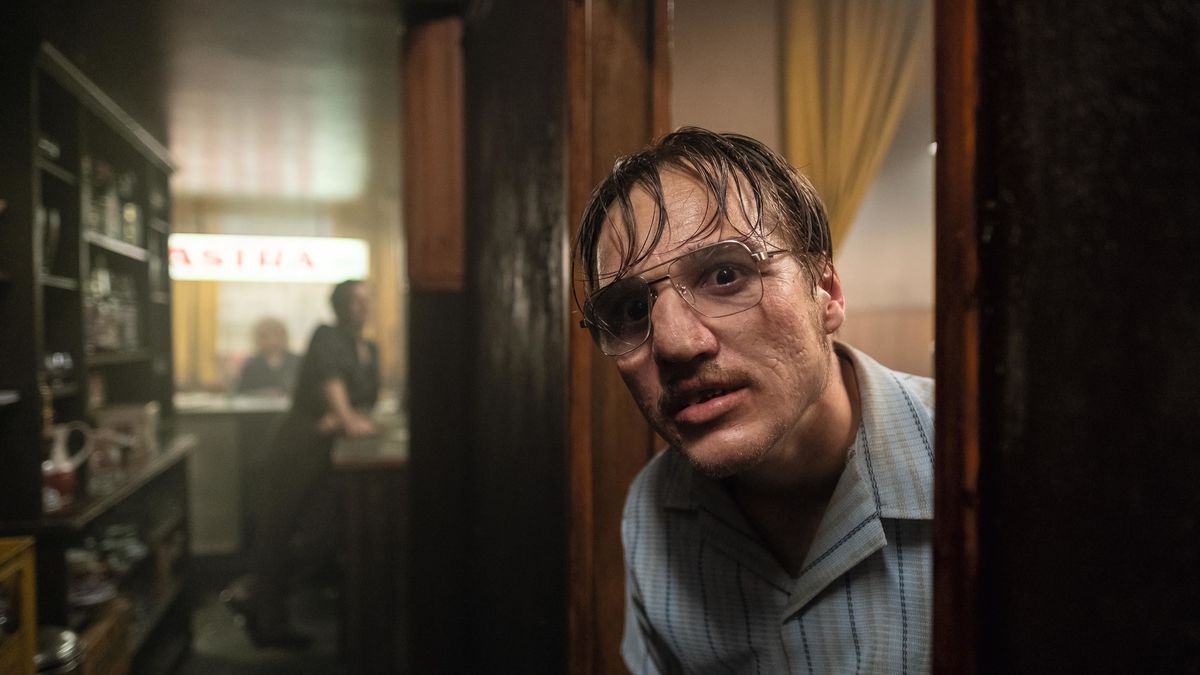
How does The Golden Glove into a contemporary climate – does it offer any comment on the society of today?
I wanted to do this as a horror film and sell it as a horror film. In Germany right now we have a problem with our past. When I was younger it was very different the reflection on our past, the Second World War and stuff. Now you have elected politicians trying tricks so we don’t have this culture of memory anymore. In Germany we always think ‘oh we handle our past so well, we’ve reflected so well we will never do it again’. This is how we sell this stuff outside, but this reflection of the Second World War, which started in ’68, or that generation, from a tiny group, by the cultural elite, the students, the intellectuals. But the proletarians, the working class, they didn’t have access to that, you know? So my film shows this generation, these people were wounded from the Second World War, they were traumatised. And what did society do with these people? Give them alcohol, because it was so cheap, so they could forget their trauma. Then you hear some music about the beautiful world where the flowers are growing and stuff like this, but this is how they handled the reflection of the war, and I had the chance to show a traumatised generation.
Thematically similar to M, then? Because that’s also about a serial killer, after a war.
We have a tradition of that. This is in that tradition.
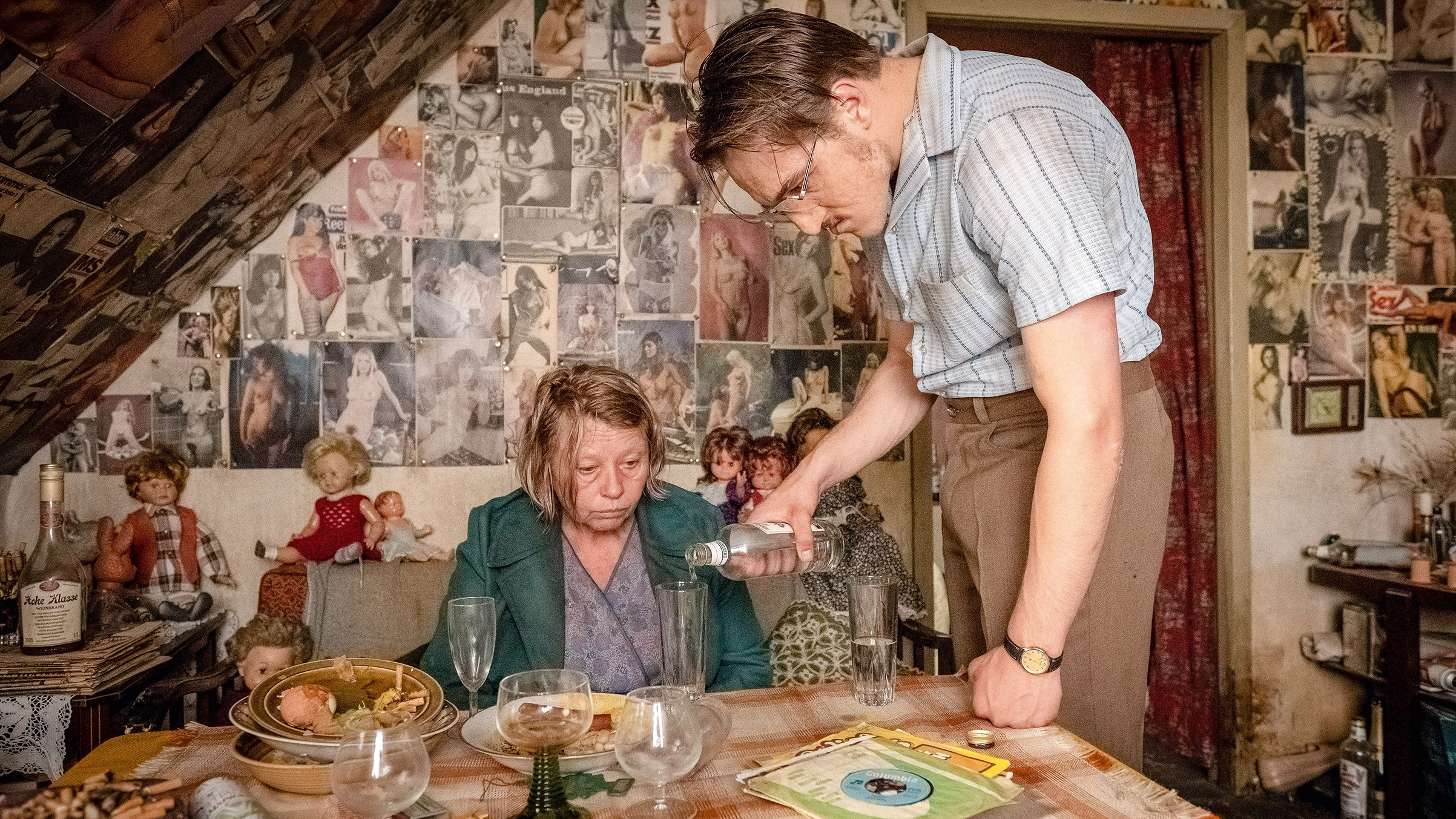
People have been vocally disgusted by The Golden Glove and they found the violence repulsive. When you hear those reactions, is that a criticism or a compliment? Did you strive to trigger that emotion within us?
Since it is a horror film, what is the purpose of a horror film? It is to create fear. This is the target, the task of a horror film. I wanted to do that. I am not okay with the way violence is shown in cinema and in movies and in the media today, my son is playing all these games like Fortnite, and Red Dead Redemption and all this stuff, and I see how huge the space of violence is. Okay I’m doing a film and a film should also entertain, but a film is also a serious matter, so I think when you see the violence and you try to show it as real and disturbing and disgusting and nasty as violence really is, maybe you get afraid of violence, maybe you see it in a different way? That was the target. It’s hypocritical to use violence in comic stuff and that’s okay, but if you show it in a real way, it’s like ‘oh we don’t wanna see that’. But look I had the screening two days ago and it was the best screening I’ve had with one of my films. It was like a pop concert, really. I had all those reactions, there were maybe a thousand people there, I had reactions on the jump scares, I had reactions on the jokes, people were laughing, I had walk-outs. People clapped, the film was interactive with the audience, and I’m a filmmaker, I believe in the cinema. I trust the audience. Today with Netflix and the streaming world, where you watch things alone at home, or with a small group, it’s not the same thing as the common experience on Saturday night, that was amazing. Cinema can still be an experience, but I have to offer something technically, and make something different that you see when you stream, so that cinema can still be an experience. Why do people think a film critic is smarter than the audience? Maybe it’s the opposite.
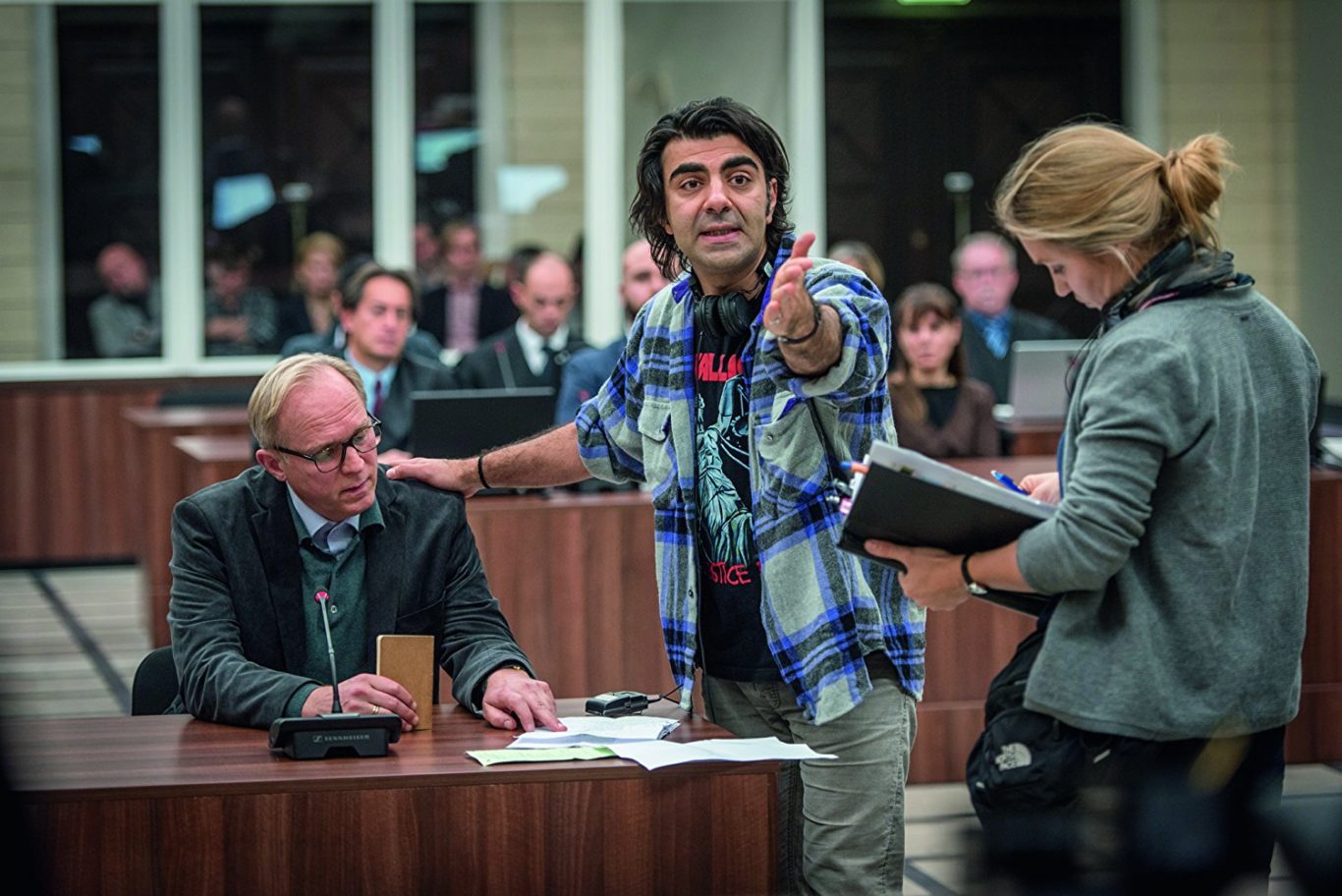
You had psychologists on set – how did they help?
Well they helped me, I needed a shrink! My producer, who is a woman, she said let’s get a psychologist on set and I was like, for what? But she said with the MeToo stuff going on, and the violence against the women in the film, we had to let our actresses have somebody, a woman. So I said okay, I trusted her, she’s a good producer. It was maybe more a symbol, but it was something the actresses appreciated so much, that the production cares about them. She was a very friendly person, and we had chats with her. The actresses asked about the victims and she always gave good answers. There was even a scene that after we shot I was really exhausted, I felt not good, and I went to her and said that I felt like a voyeur. Then she said to me that the so-called morality of society, taught us that being a voyeur is a bad thing, but voyeurism in the human body, evolution made it. We see a car accident, and we watch it, it gives us the feeling that we are alive, that’s the nature of voyeurism. That’s what it is, and that helped me in that moment.
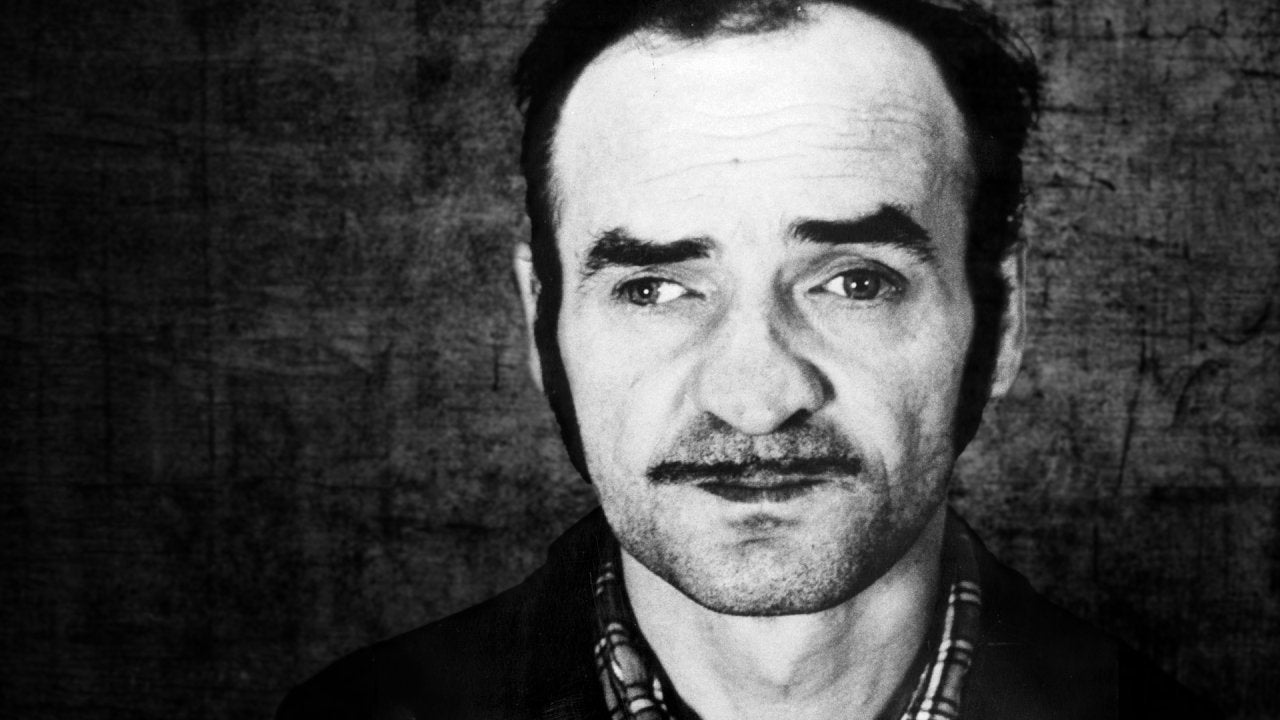
Was there any material you cut out because you were worried it would be too much for the audience?
No, I don’t think so.
Would you say The Golden Glove is also about addiction?
It is a film about addiction, of course it is. I think it was a pathological case, there is no explanation. I mean there is a medical explanation, sexual dysfunction, frustration, borderline syndrome, he was a manic depressive and the only perversity they think he had was necrophilism. There is a damage in the brain, but I think, this is my personal belief, he did those killings because to that pathological elements, you tune them with booze. It’s like a tuning. It’s like all your borders collapse, and he did those killings after he’d drunk so much. Bottles and bottles and bottles. I cannot drink that much. If you drink it, nothing works. You shit in your pants. When people drink like that nothing works. So you kill someone and it’s like ‘sorry, excuse me’. Then the next morning you don’t wanna go there. We live in a society where alcohol is still allowed, legally, and I’m not saying it shouldn’t be, but make it more expensive, don’t give it to the poor people.


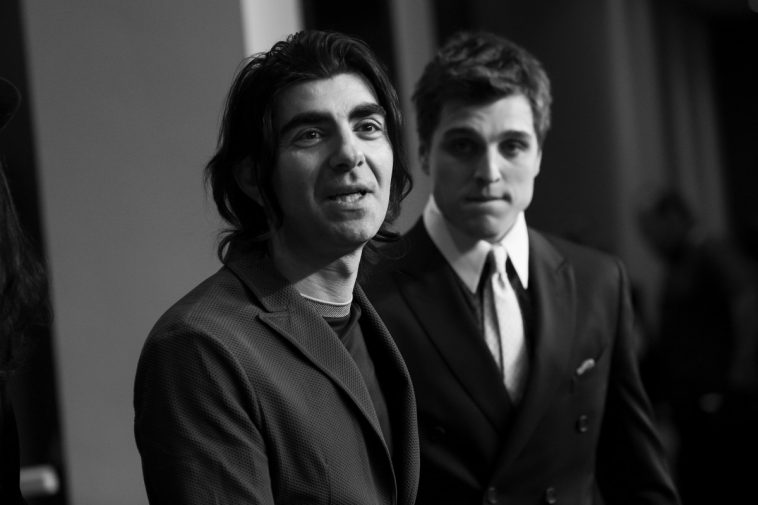
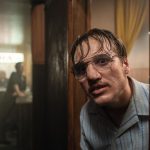




Leave a Comment